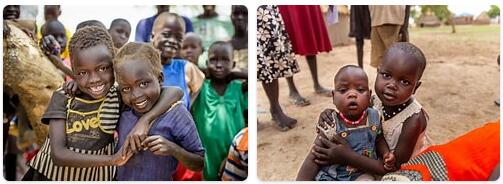Sudan, the third-largest country in Africa, is located in the northeastern part of the continent and has a tumultuous history marked by political instability and conflicts. With a population exceeding 44 million, Khartoum serves as the capital and political center. Sudan’s political landscape has undergone significant transformations, particularly after the secession of South Sudan in 2011. The country is now governed by a transitional government consisting of military and civilian representatives following the ousting of longtime President Omar al-Bashir in 2019. The Forces of Freedom and Change (FFC), a coalition of civilian groups, and the Transitional Military Council (TMC) jointly lead the transition period. The political scene is dynamic, with various parties and factions playing roles, including the Sudanese Professionals Association (SPA), a key player in the protest movement against al-Bashir. While Sudan grapples with the aftermath of protracted conflicts in Darfur, South Kordofan, and Blue Nile, efforts are underway to achieve national reconciliation and address economic challenges. The country’s economy is predominantly agricultural, with sectors like oil production, gold mining, and livestock playing crucial roles. Sudan has diverse ethnic and cultural communities, and Arabic is the official language. The nation’s cultural heritage is reflected in its historical sites, such as the ancient city of Meroe and the pyramids at Nuri, showcasing the rich history of ancient Kush. As Sudan navigates the complex challenges of post-conflict recovery, economic reform, and political transition, international support and regional cooperation remain integral to shaping a stable and prosperous future for the nation. Sudan’s strategic location, with access to the Red Sea, adds geopolitical significance, making it a key player in the Horn of Africa and the wider Arab world. As the country strives for democratic governance, social justice, and economic development, the collaborative efforts of Sudanese citizens, political stakeholders, and the international community are essential in charting a sustainable course forward. GETZIPCODES: Features democracy and rights of Sudan.
